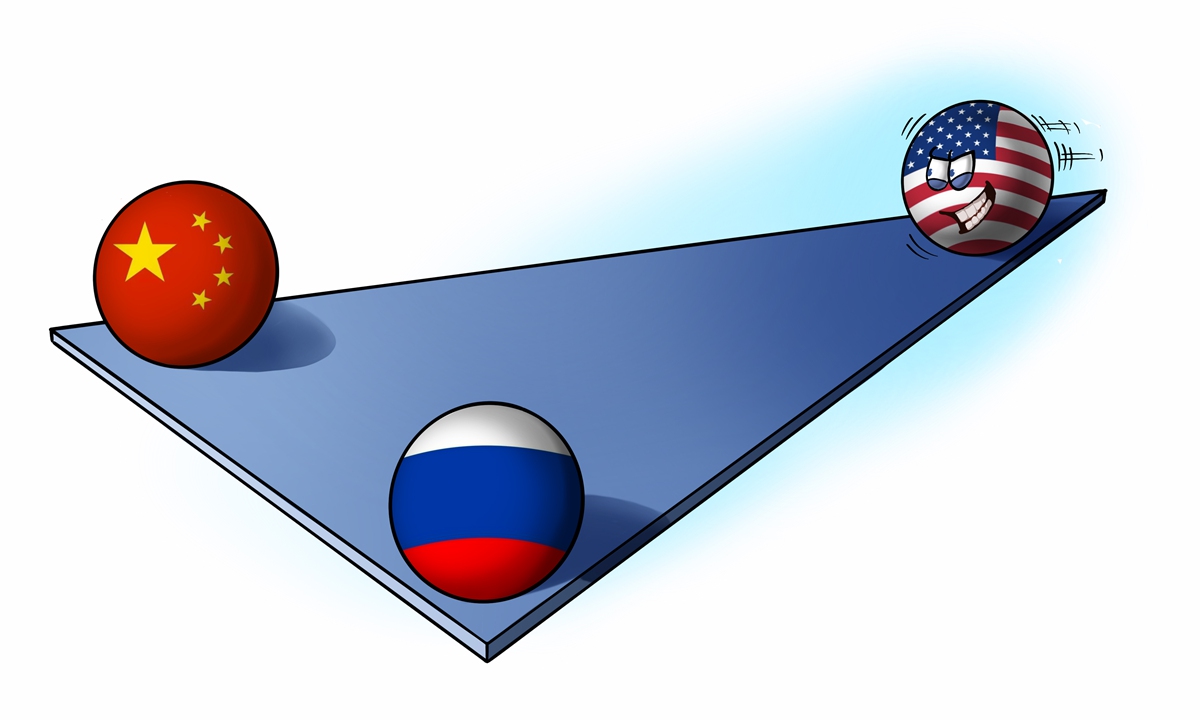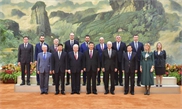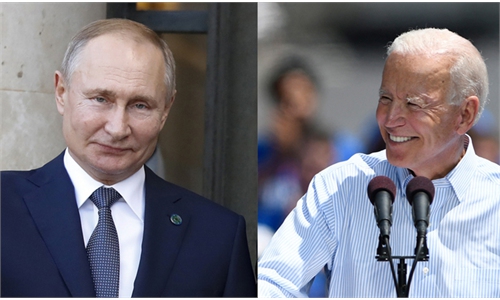
Illustration: Liu Rui/GT
The summit between Russian President Vladimir Putin and US President Joe Biden will take place in Geneva, Switzerland on June 16. This will be the first meeting between the two leaders since Biden took office, and the first Russia-US summit between the presidents of the two countries since July 2018.For the US, this summit is mainly an attempt to test Russia's attitude and learn Russia's current thinking about bilateral relations. However, Russia-US relations will not get better after one summit because deep-seated conflicts between the two countries still exist, especially in terms of values. So the US will definitely continue to suppress Russia in the domains of human rights, democracy and freedom. And as long as the US plays the "human rights card" at the upcoming summit, Russia will fight back because Washington has its own problems with human rights and democracy as well.
There is a view about why Washington has chosen to show goodwill to Moscow. It argues that it is because the US has shown signs of being overwhelmed and tired of fighting on two fronts in the face of a Moscow-Beijing axis.
Washington may be thinking that way, as it has now set on confronting China from all directions. The US believes that China and Russia will be united more closely if it does not try to pull Russia to its side. It would also be good for Washington's overall strategy if relations with Moscow were to ease up.
Of course, the US cannot bluntly ask Russia to unite against China during the summit. After all these years of development, Russia also knows that China-Russia relations are very crucial for it. So it is unrealistic to think that Moscow will just follow Washington's steps.
White House press secretary Jen Psaki commented on May 25 on the upcoming summit that the two leaders "seek to restore predictability and stability to the US-Russia relationship." One day earlier, in the joint statement released by the White House regarding US National Security Advisor Jake Sullivan's meeting with Russian Security Council Secretary Nikolay Patrushev, both sides "agreed that a normalization of U.S.-Russian relations would be in the interest of both countries and contribute to global predictability and stability."
Even though the US and Russia are at odds with each other, they still share common interests on some international issues. There is room for cooperation on matters such as Middle East issues, the balance of global strategic stability, global counter-terrorism, and climate change. Of course, these interests are also closely related to China and are in the interests of both China and the US.
This summit is more symbolic, and the most likely substantive outcome will be in the area of arms control. In February, the US and Russia extended the New Strategic Arms Reduction Treaty. Now the US may hope that Russia can persuade China to come along with it on this matter. But China's attitude on arms control has been made very clear, so there is no way Beijing will join such a conversation.
The US policy line toward China and Russia has been clear and consistent. In the eyes of the US, Russia is its strong military and strategic security threat, while China is the "most serious competitor" that challenges Washington's leadership in many spheres.
However, the world is now interconnected, and our time demands peace and development. Therefore, it is impossible to assume that there will be absolute competition between countries without any form of cooperation.
In general, the overall US strategy toward China and Russia is about both confrontation and competition. And the US will still take a cooperative approach in areas where it is possible to cooperate in the interests of both the US and China or Russia. In the future, Washington will maintain such a posture of "cooperation within competition" toward both Beijing and Moscow.
As for China-US relations, although it seems that any bilateral relationship between China, Russia and the US will influence the other, the three countries are not in a two-to-one triangle relationship as they were during the Cold War era. Plus, the relationship between China and the US has its own logic of development. Therefore, in the short term, closer Russia-US relations will not affect China ties with either the US or Russia.
The author is a senior research fellow in the Institute of Russia, Eastern European and Central Asian Studies at the Chinese Academy of Social Sciences. opinion@globaltimes.com.cn


